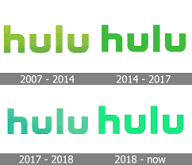In this post, we will be talking about the popular streaming service Hulu. I chose this technology simply because it is my favorite streaming app to watch. I will go into depth and answer the two questions below.
1. History: Who invented your technology? What were the circumstances? What problem were they trying to solve with their invention?
Founded in 2007, Hulu started off as a joint venture between NBC Universal, Providence Equity Partners, and News Corporation. Walt Disney joins later as a stakeholder. It was created by a few key people. Its first CEO Jason Kilar, with Peter Chernin driving the ideas.
During this time it was the mid-2000s, so here we can see the entertainment industry beginning to shift and make changes. Digital media was on the rise rather quickly. Consumers were watching TV less and less. The television networks were starting to see a decline in their viewers to online streaming services and other platforms. These companies were beginning to realize they needed to change and adapt to the consumers.
Hulu was created to help kind of solve the problem of consumers watching pirated content. It was created to provide consumers with an alternative "legal" friendly platform rather than pirated content. The creators wanted to make a single platform where consumers could easily have access to movies, TV shows, and other content on demand. This also helped solve the problem of cable not being as convenient for consumers. This was due to consumers being pushed into this digital age. Everyone's online! It also helped providers monetize their content online.
2. Impact: How did the invention change our world? What problems did it solve? How did it change communication? Did it have any negative effects?
Hulu helped in changing the way that we as consumers consume content and entertainment. The way that we like to stream TV shows, movies, and other content online now, was popularized by streaming services such as Hulu. Hulu contributed to the shift from traditional cable television to online streaming services. They helped in influencing future streaming platforms and online content.
Hulu helped to solve problems such as accessibility, providing legal easy access to a large range of content. Another one is convenience, allowing consumers to stream shows and movies on their own time and schedule. Lastly, it helps with monetization, providing content providers a new revenue through advertisements and subscriptions.
This changed communication in the delivery of content. The way entertainment is promoted and advertised has changed as well. Instead of watching ads as commercial breaks in between shows and movie breaks, we get ads throughout our social media, YouTube ads, and ad pop-ups on all different platforms.
As cool as this transition was, it didn't benefit everybody, and there were some negative effects. Hulu and other streaming services greatly impacted the decline in viewership and revenue of traditional cable television. Also impacting its advertising revenue as well. Another negative effect is now we see more and more new streaming services being created. This has created heavy competition for Hulu and other early streaming services. Because there is now this much competition within streaming services it can become overwhelming for consumers. This can make it more difficult for consumers to choose which subscription services they want to pay for, and what they would like to watch.
References:
- Sanson, K., & Steirer, G. (2019). Hulu, streaming, and the contemporary television ecosystem. Media, Culture & Society, 41(8), 1210-1227. https://doi.org/10.1177/0163443718823144
- V. K. Adhikari, Y. Guo, F. Hao, V. Hilt and Z. -L. Zhang, "A tale of three CDNs: An active measurement study of Hulu and its CDNs," 2012 Proceedings IEEE INFOCOM Workshops, Orlando, FL, USA, 2012, pp. 7-12, doi: 10.1109/INFCOMW.2012.6193524. keywords: {Servers;Streaming media;IP networks;Bandwidth;Mobile communication;Mobile handsets;Protocols
Thanks for reading, hope you enjoyed it!



Comments
Post a Comment